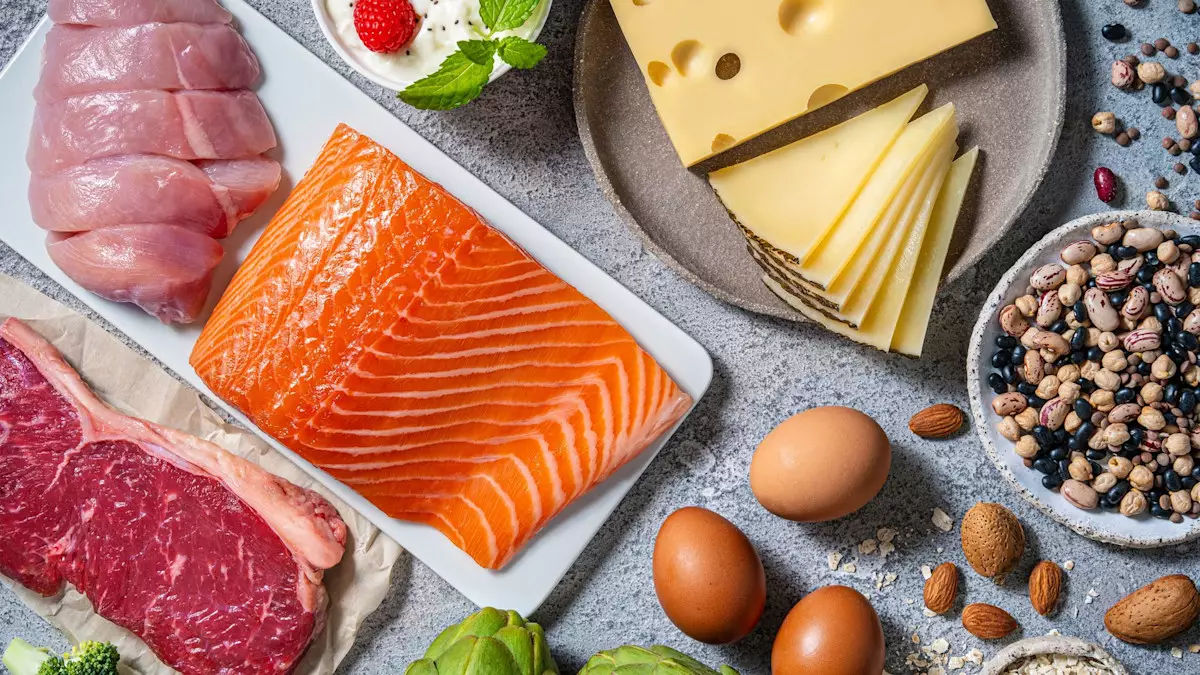When we think of protein, images of athletes and bodybuilders often come to mind, but this essential macronutrient is foundational for everyone, regardless of their fitness level. Protein acts as the building blocks for the body, significantly contributing to our hair, skin, nails, muscles, hormones, and immune systems. Unfortunately, amidst our busy lives and the lure of various diet trends, many women are falling short of their protein needs. If you’ve ever noticed unrelenting fatigue, unexpected cravings, or shifts in your mood or physical appearance, protein deficiency could be the stealthy culprit behind your woes.
Too often, we overlook the nuances of our bodies’ signals, mistaking them for stress or age-related changes. For instance, a sudden spike in hunger post-meal might be your body’s way of indicating that it didn’t receive enough protein. This nutrient plays a crucial role in signaling satiety by stimulating hormones that help regulate hunger. A diet lacking in sufficient protein can keep you reaching for quick-fix snacks, particularly those laden with sugar. Introducing protein-rich options like chickpeas, lean meats, eggs, or legumes can effectively combat energy slumps and help curb those pesky snack attacks.
The Role of Protein in Maintaining Muscle Mass
Muscle isn’t merely about aesthetics; it serves a critical function in metabolism, balance, and daily activity. Insufficient protein intake can result in the body breaking down muscle tissue to meet energy demands, especially during weight loss efforts. Over time, this depletion can lead to diminished stamina and notable muscle weakness. This is particularly vital for women over 40, as maintaining muscle mass becomes essential for long-term health and injury prevention. By integrating protein into each meal, paired with regular strength training, you can shield your lean body mass and foster a sense of vitality.
One of the first visible signs of protein deficiency often manifests externally. If you’re observing thinning hair, lackluster skin, or brittle nails, it’s time to investigate your nutrition. Protein is indispensable for synthesizing keratin, collagen, and elastin—all critical components that underpin the strength and health of your hair, skin, and nails. Many discover that what they assumed was an aging issue or stress response is actually a nutrition gap that can be remedied through dietary adjustments.
Fatigue and Mental Clarity: The Protein Connection
We all have days that leave us drained; however, if fatigue becomes habitual and doesn’t alleviate with rest, it may signal that your diet lacks essential nutrients. Protein helps stabilize blood sugar levels, supports the transport of oxygen, and contributes significantly to metabolic functioning. Insufficient protein can lead to lingering feelings of sluggishness, mental fog, and an overall sense of depletion—even when sleep isn’t a concern. If your breakfast consists of toast or sugar-laden cereal without protein, consider switching it up with a nutrient-packed smoothie or a boiled egg to fuel your day.
Moreover, did you know that protein plays a vital role in bolstering your immune system? It’s integral in the formation of antibodies and immune cells that fend off illness. A low-protein intake could compromise your body’s defenses, leaving you more susceptible to lingering colds. If recovery from minor illnesses takes longer than usual, boosting your protein consumption might enhance your resilience.
The Ripple Effects of Inadequate Protein Consumption
It may come as a surprise, but many individuals experience physical changes in their extremities when undergoing rapid weight loss or strict dieting. Areas like the soles of your feet and palms of your hands, which possess small fat pads that cushion you, may start to feel tender or less cushioned. This phenomenon typically relates to inadequate nutrition overall, particularly when muscle mass is quickly diminished.
It’s also essential to recognize that the mental realm is not isolated from physical nutrition. Protein plays a role in generating neurotransmitters such as serotonin and dopamine, which influence mood and cognitive function. A deficiency can lead to reduced motivation and mood swings. If you find your emotional health in a precarious state and can’t pinpoint the reason, your diet may carry more weight than you realize.
Listening to Your Body: The Importance of Understanding Cravings
Cravings serve as a listener’s guide to what your body requires. If you have been yearning for protein-rich foods like steak or cheese, your body might be signaling a need for more protein. Cravings shouldn’t be disregarded; they can be informative—especially when accompanied by other symptoms. By tuning into your body’s cues, you can make dietary adjustments before more significant health issues arise.
While the general recommendation suggests about 0.8 grams of protein per kilogram of body weight, many women, especially those who are active, pregnant, or in the menopausal stage, might benefit from higher intake. Aim for 20 to 30 grams of protein with every meal by including sources such as fish, eggs, Greek yogurt, chicken, and legumes. Spreading your protein intake throughout the day while complementing it with healthy fats and vibrant vegetables creates a balanced diet that not only satisfies but also nourishes.
In the realm of wellness, protein stands as more than just another nutrient; it’s a critical cornerstone that influences your overall state, health, and energy levels. Being mindful of your body and adjusting your diet accordingly can lead to remarkable improvements in your health and wellbeing.

